Parkway vs. highway, freeway vs. expressway. We certainly have a lot of names for major roadways. Why is that? Is the expansive list just an expression of our love for the English language? Can the variations simply be chalked up to regional differences? (e.g., do you call it “soda” or “pop”?) Or is there another explanation altogether?
Granted, many of these terms are used interchangeably today. But they were each originally created for distinctive purposes and with defining characteristics. By and large, these purposes and characteristics remain today.
So, what exactly is the difference between a parkway and a highway. And what about freeways and expressways?
Parkway vs. Highway
What is a Highway?
The major difference between highways and other types of major thoroughfares is open access. Highways often intersect with side streets and private driveways that provide motorists with continual entry points. Parkways are only accessible via designated entrances.
Highways can also be lined with businesses, gas stations, parking lots and even private homes. This, coupled with the aforementioned intersections, contributes to a slowdown in traffic that limits a highway’s effectiveness in promoting movement.
What is a Parkway?
Parkways were originally devised of in the late 1800s to connect large, urban parks that were becoming increasingly popular. As such, they were developed as extensions of these lush spaces. Early parkways were constructed along wider corridors, allowing them to be lined by trees and lawns. The roads themselves were broader, which promoted a sense of leisure and recreation that directly opposed the cramped city streets of the time.
To this day, parkways typically provide a more scenic route than other types of major roadways. As opposed to highways, parkways are limited-access roads and, in sticking to their recreational origins, are often only open to passenger vehicles.
Did You Know? Famed landscape architects Frederick Law Olmsted and Calvert Vaux devised the world’s first parkway, New York City’s Eastern Parkway, as a scenic accessway to Brooklyn’s Prospect Park.
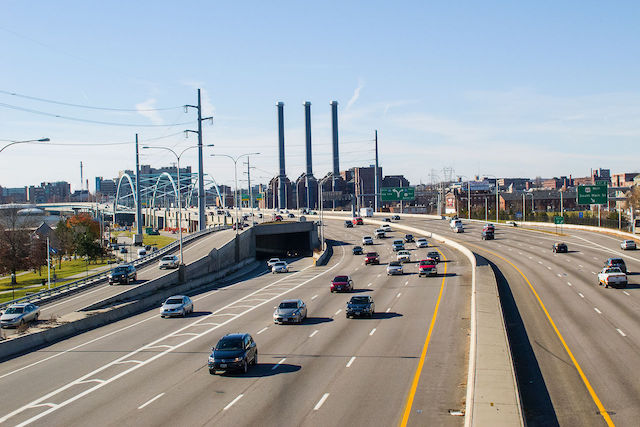
Freeway vs. Expressway
What is a Freeway?
Highways and parkways successfully facilitated traffic in the nascent stages of the automotive era. But as more and more cars took to the road during the early 1900s, a new type of roadway was needed to handle the increased traffic.
Edward M. Bassett, one of the founding fathers of American urban planning, developed the solution. Bassett envisioned a roadway that incorporated features of both highways and parkways to create a freer flow of traffic. As such, these new thoroughfares would be known as “freeways.” Like highways, freeways promote transportation by providing a faster, more-direct route between destinations. They did not, however, intersect with other streets or be lined by private business and homes. Freeways would also be open to both personal and commercial vehicles, unlike parkways.
What is an Expressway?
Expressways are similar to freeways, with one major distinction. Expressways are defined as divided highways with partial control of access, according to the Federal Highway Administration, as opposed to freeways, which have full control of access. This means that expressways may intersect with other roads.
With the parkway vs. highway issue in the rearview mirror, learn about some other dueling automotive topics, such as synthetic vs. convention oil and manual vs. automatic transmission.
9 Thoughts on “Parkway vs. Highway: What’s the Difference?”
Leave A Comment
Comments are subject to moderation and may or may not be published at the editor’s discretion. Only comments that are relevant to the article and add value to the Your AAA community will be considered. Comments may be edited for clarity and length.



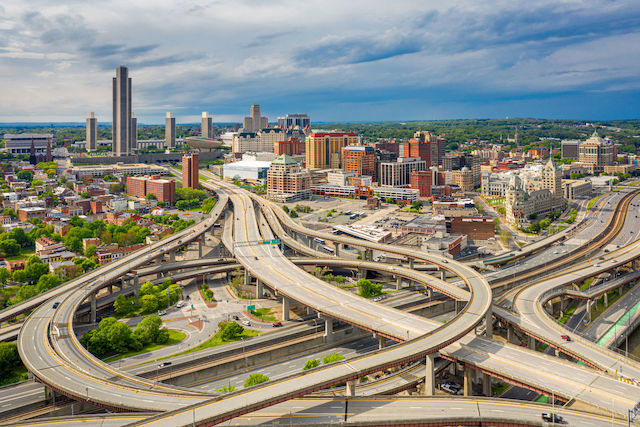


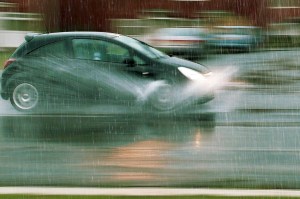

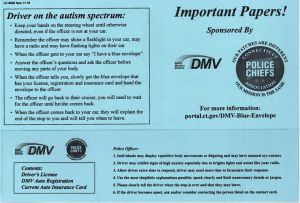

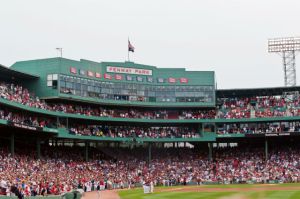

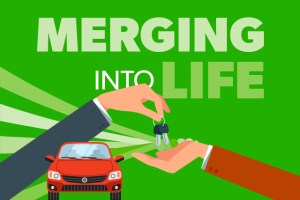




The bottom line is know what the rules are and if necessary carry a copy, if you think you may get pulled over. I used to travel the Belt Parkway a lot in the 80’s. I used to see K cars (station wagons) pulled over all the time. They usually had a cargo screen behind the driver. The cars had NJ commercial plates. At the time I had a Ford Ranger. NJ made you pay the commercial registration fee but gave you regular plates if you signed a document saying that you would not place any signs on the vehicle. The registration still says “commercial” good luck trying to talk your way out of a ticket. At one time vans on the GSP had to have so much square footage of windows to be legal
The definition of what constitutes a Parkway varies by each state. In New Jersey the Garden State Parkway was originally for automobiles only. Any vehicle with commercial license plates (including cars and even pick-up trucks) were not permitted on the parkway. Motorcycles were also forbidden! Now almost any vehicle, including light trucks and vans are permitted, and even large trucks and eighteen wheelers are allowed below a certain mile point in south Jersey.
In New York State ONLY automobiles are allowed on any road designated as a “Parkway…” No commercial vehicles, trucks or even light vans are permitted. Autos pulling trailers, such as boat or utility trailers are forbidden. These restrictions are vigorously enforced (I know from personal experience).
Most Southern states use the Parkway designation to identify a scenic route, usually through mountainous and rural areas. These roads are strictly for automobiles and motorcycles and have very few services and limited exit and entrance points along the way. Examples being the Natchez Trace Parkway from Tennessee to Mississippi, and the more well known Blue Ridge Parkway running over 400 miles from Virginia to the Great Smokey Mountain N.P. in North Carolina.
Pickup trucks now allowed on Parkways in New York.
There actually doesn’t seem to be a statewide definition of the term “parkway” in New York. I just checked the Highway, Transportation, and Vehicle & Traffic Law on the state legislature website, which is very up to date, and I couldn’t find a definition or generally applicable rules. And I think the rules must vary slightly from highway to highway. I regularly see MTA buses on the Belt Parkway (IMHO very frightening), particularly coming around from the Verrazzano and the BQE. I believe semi-rigs and other large commercial vehicles (other than buses) are never allowed. But otherwise, apparently there are specific laws and rules that create and govern the operation of each particular road.
Highway = street intended to be a main drive for autos and commercial vehicles, that is lined with businesses and houses, and is intersected by side roads and driveways
Parkway = limited access scenic drive for autos only
Freeway = like a parkway, but commercial vehicles are allowed
Expressway = divided highway for autos and commercial vehicles with limited access that intersects other roads; there is a federal system of interstate expressways
Thoroughfare = a road or path forming a route between two places
Throughway = a broad highway designed for high speed traffic
Turnpike or pike = an expressway on which a toll is charged
Good article, and thanks for the clarification on highways, which is my wife’s name for freeways. I just wish it had been more comprehensive as to include such designations as pike, turnpike, and thruway.
Okay, so why do we Park in A Driveway & Drive in a Parkway?
But what about thruways? My wife is from Buffalo so all highways (freeways I guess, actually) she calls thruways. But she’s also one who calls the pike “the 90”. 🙂
Good article. Redefined highway for me.
As one who has lived in both upstate New York and in Massachusetts, I agree we call the fast roads, highways. We don’t call any road with curb cuts a highway. I-90, the New York State Thruway is “the thruway”, and I-90, the Massachusetts Turnpike, in Mass., is simply “the pike”.